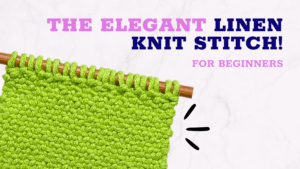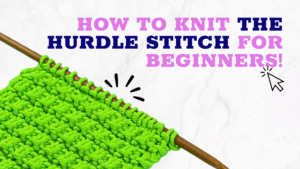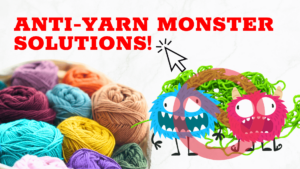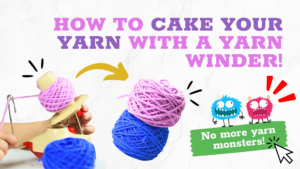10 Must-Have Knitting Supplies for Beginners
These 10 tools will get you started knitting in no time.
These 10 tools will get you started knitting in no time.
Choosing the best knitting supplies for beginners can be intimidating. Knitting is a fun and therapeutic craft–a pleasant pastime for many, a business for a passionate few– but it can also be an intimidating one to start gathering supplies for!
As a beginner knitter, whether you’re just about to start casting on your first few stitches or you’re ready to tackle your very first finished project, having the right tools will make everything fun and easy.
As always, there are so many ways to choose the best tools for beginner knitters. Our guide will help you understand the basic categories of knitting supplies. Stay tuned for more articles listing the best knitting needles for beginners as well as the pros and cons of different materials or styles for popular beginner knitting supplies!
To get started, here’s the quick list of tools you’ll need to curate and build your own library of tools for beginner knitters. We explain more thoroughly why you need them below!
There aren’t scissors specifically for knitting. Any good ol’ pair will do, as long as they’re sharp enough to cut yarn.
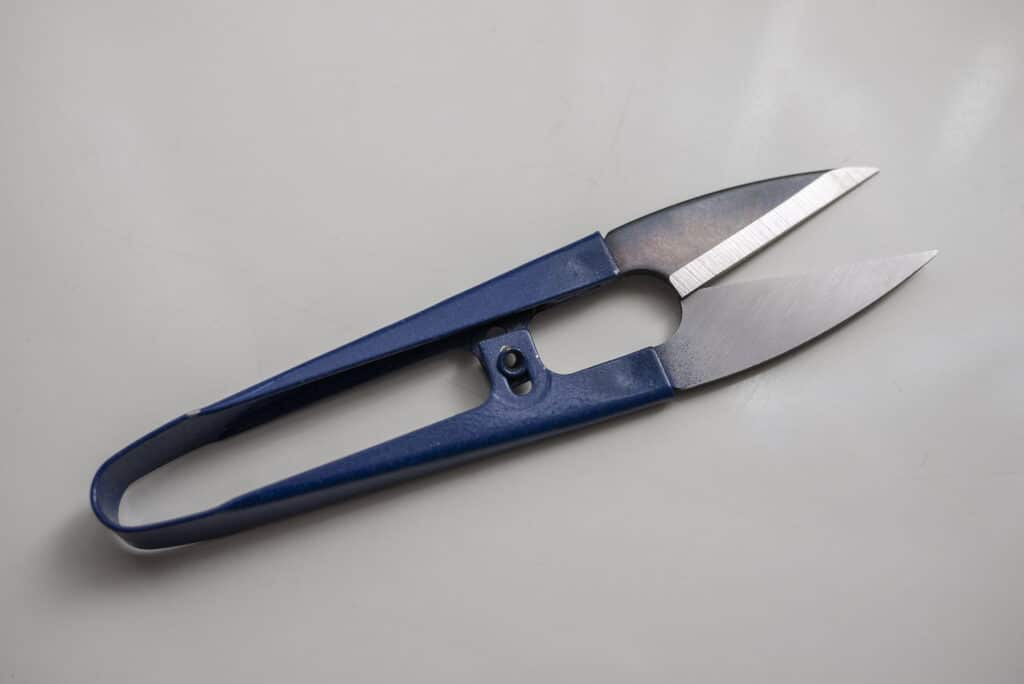
However, you might find that it’s easier to travel with a small pair of snips instead of full-sized scissors. Snips are just big enough to snip a yarn tail here or there, perfect for projects on-the-go!
So many knitting patterns tell you to “knit until your project measures X inches” so having a measuring tape nearby is a great idea! Measuring tapes are especially useful if you’re working on something large in scale, like a scarf.
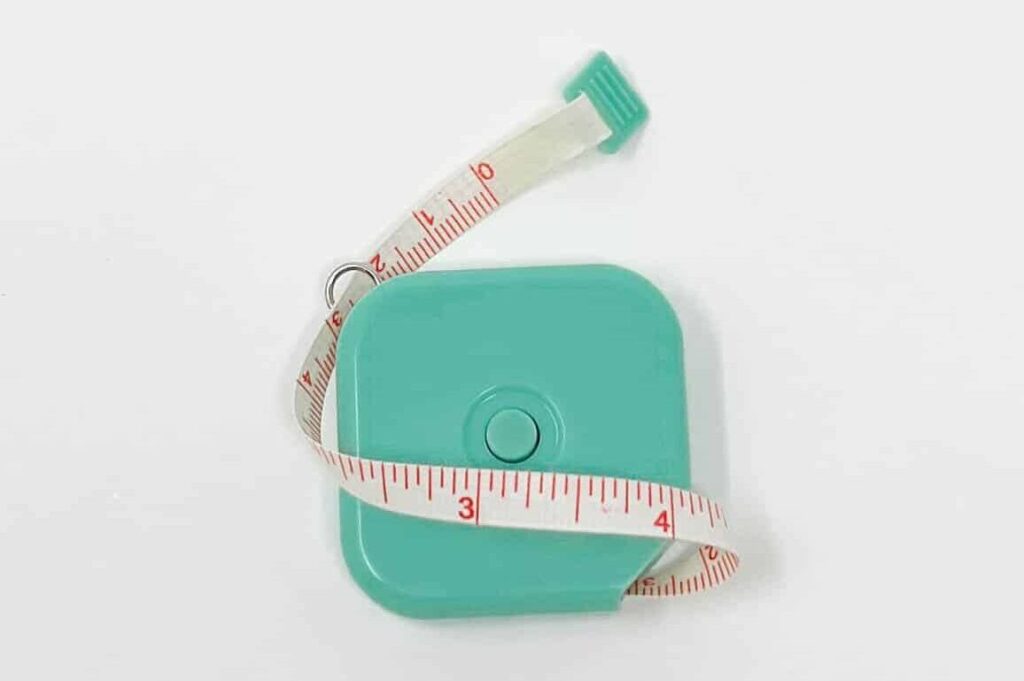
Our favorite measuring tool for beginner knitters is a simple ribbon or fabric style. Retractable measuring tapes are neat and easy to store. They can also be more accurate over time since they’re stored in a protective case and won’t stretch out over time or get tangled.
You’ll need a needle gauge to determine what needle size you’ll have to use for the yarn you have! A needle gauge is used to measure not only your knitting needles but also the gauge swatch you’ve made as a test before knitting a whole pattern.
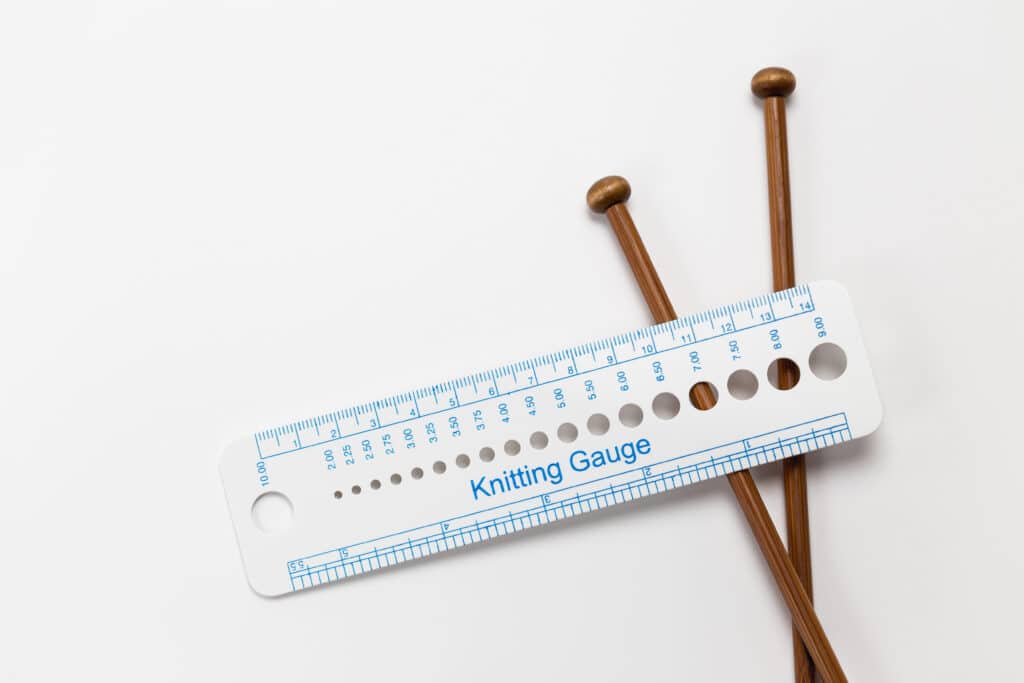
It’s important to get all the sizes right from the get-go. Some must-haves in a needle gauge include a ruler (inches and cm!) and a wide range of needle gauge holes. A gauge gets bonus points if it also lists crochet hook sizes too!
Also called “tapestry needles” or “darning needles”, these are primarily used for weaving in ends and seaming a project together. Not to be confused with sewing needles, yarn needles for knitting feature a blunt tip and have eyes large enough for a range of yarn weights.
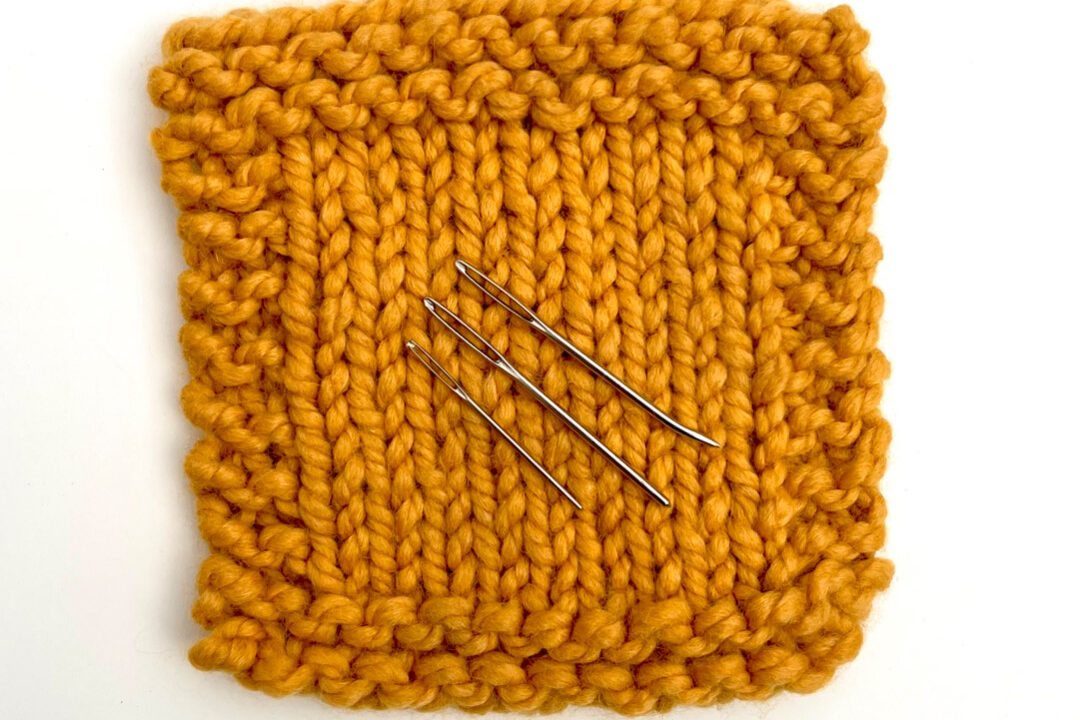
Yarn needles come with either straight or bent tips. We recommend buying a bent tip needle to make sewing through tricky textures easier. It’s also a great idea to have a range of darning needles in different sizes and styles, that way you’re ready for anything!
Of course, you’ll need a bag to store all your precious supplies! The most popular kind of knitting bag has room for a medium-sized project (sweaters, etc.), handles for easy carrying, and pockets with plenty of storage room for small tools.
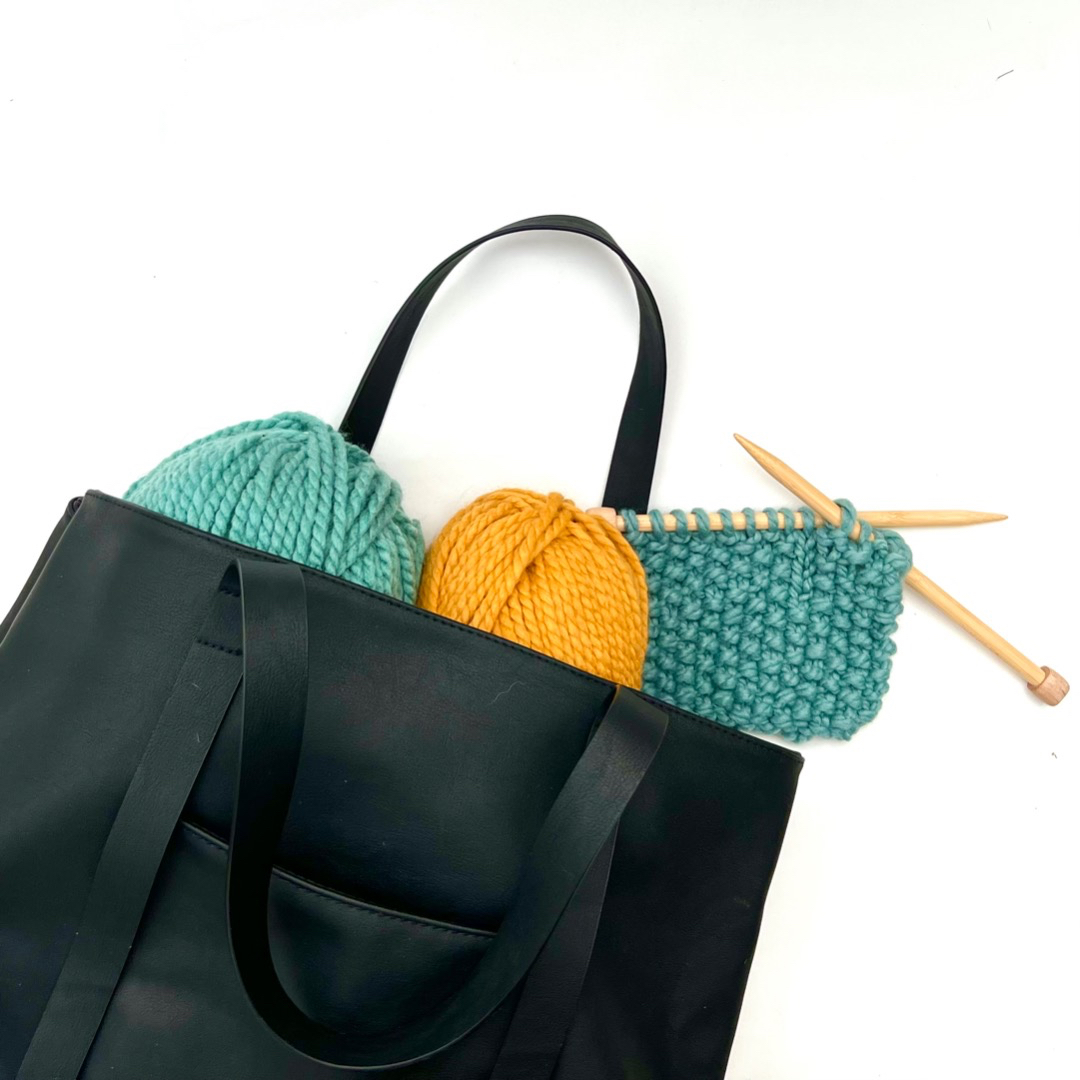
A handy tip: pick a knitting project bag big enough to fit either a printed paper pattern or a book of patterns for knitting-on-the-go! There’s nothing more frustrating than losing your place in a pattern because you had to leave it behind or wrinkling a pattern in a bag that’s too small.
Straight needles are the best knitting needles for beginners! They come in a range of sizes, and they’re easy to use — less confusing than other needle types. However, you’ll only be able to knit back and forth flat, so keep that in mind as you start to tackle hats or round projects.
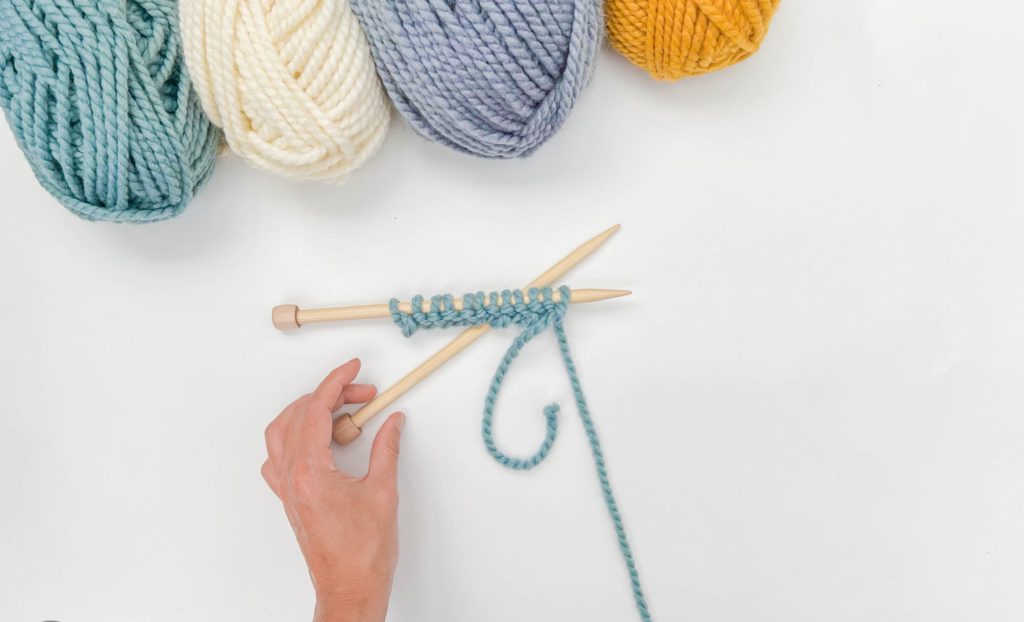
Choosing the right knitting needles for beginners also includes picking the right material too! Straight needles come in several materials, including wood, acrylic/plastic, and metal. We recommend starting with a set of wooden needles. Wood tends to be less slippery than metal, it’s warm to the touch and slightly flexible, making it a great beginner-friendly knitting needle material. Bamboo is a great and affordable material to start with before upgrading to a fancier wood!
Every knitter has their own favorite type of yarn. Our go-to yarn for beginners is acrylic because it’s inexpensive, accessible, and durable. The best part about acrylic yarn is that it’s easy to wash! Other yarns might need special care, like handwashing, but most projects made with acrylic yarns can be tossed into the washer and dryer. This makes it perfect for home decor projects like afghans or throws that are large and need to be cleaned often.
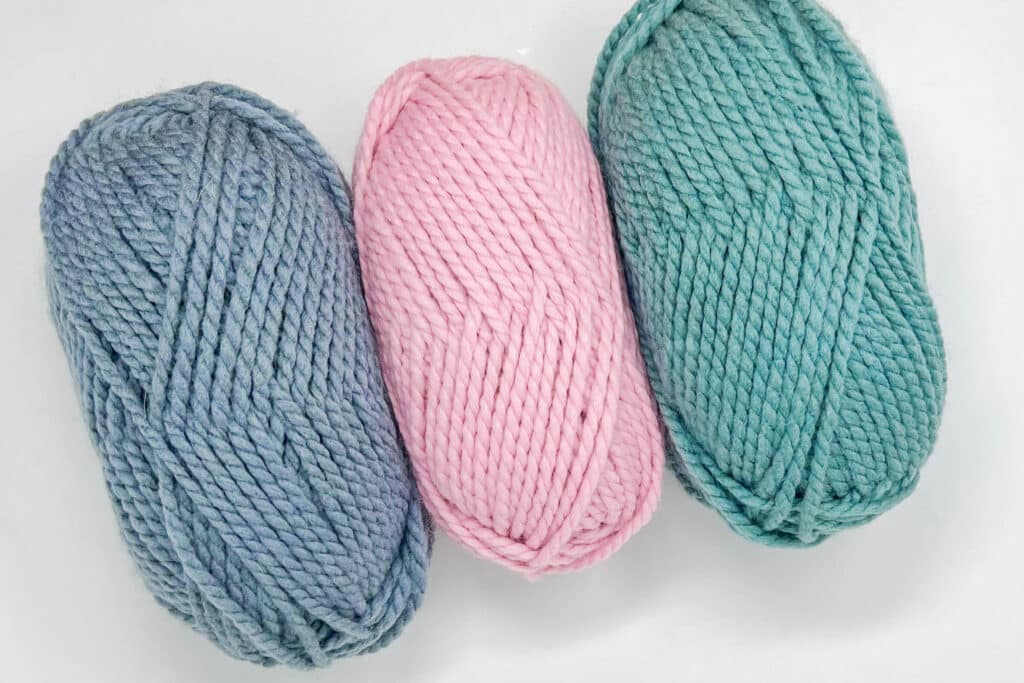
We recommend starting with a bulky, chunky, or jumbo yarn as you learn to knit! Chunkier yarns make it easy to see the stitches. You’ll also find that thick yarn gives stitch patterns a more pronounced texture. It’s easier to see progress as well.
Stitch markers may be tiny, but they’re incredibly useful. The name is pretty self-explanatory: you can use them as a placeholder when you pause a project, mark increases and decreases, and other areas in patterns.
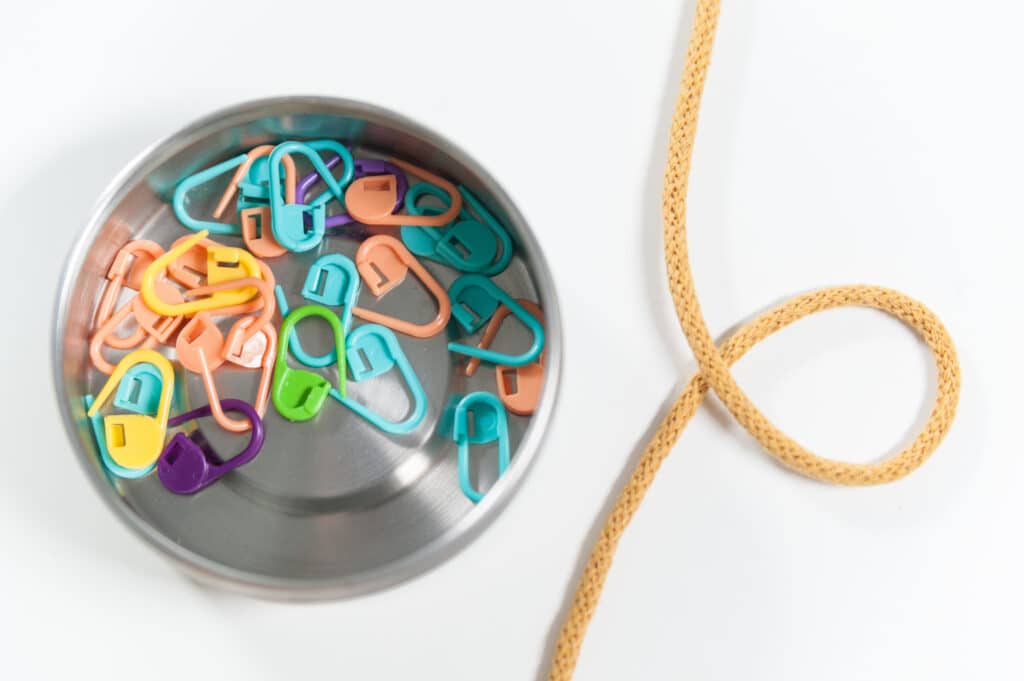
We love stitch markers that can lock rather than a closed-ring style. Locking stitch markers, also called removable stitch markers, make it easy to either place a marker within a row on your needle or to thread it through and lock on an area of fabric in your knits. It’s always a great idea to snag a new tin of stitch markers any time you’re buying yarn for a new project, you can never have too many!
A notebook is one of the most useful (and underused!) tools for beginner knitters. Keeping a notebook handy makes it easy to save something for future reference.
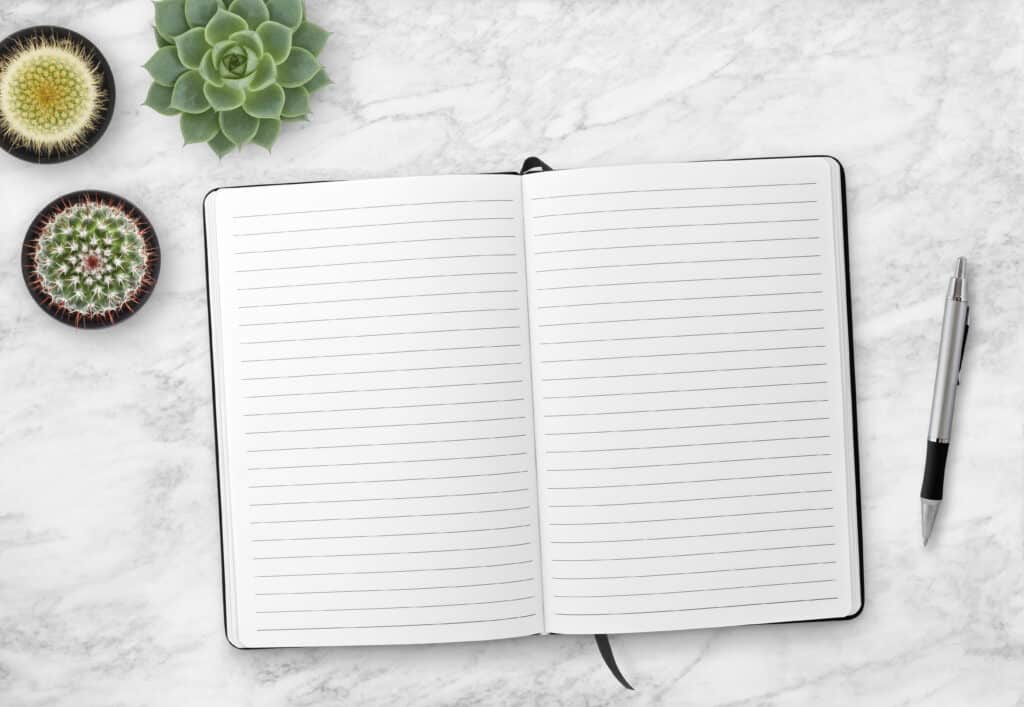
Notebooks are great for taking notes about your current project or questions you want to google later. Some notebooks even come with knitter’s graph paper to make drawing charts easy!
The best tool in a knitter’s kit is plenty of inspiration! It can come in many forms: a book, a YouTube tutorial, a Pinterest board, Ravelry, or even a newsletter. To get you started, how about subscribing to ours? You’ll get updates on our latest content, from how-to videos to product launches. Sign up below!
Subscribe to our newsletter!
Like any other hobby, you have to start with the basics first. You don’t want to get ahead of yourself and go all out on supplies when you’ve barely just begun.
Once you’ve got the fundamentals down, you can start expanding your knitting kit, including playing around with other types of yarn and trying out different types of knitting needles. There are so many ways to customize your library of tools for beginner knitters, we hope this list gives you a great place to get started.
Did we miss anything in our list of knitting supplies for beginners? Let us know in the comments!
Note: This article does not contain affiliate links.
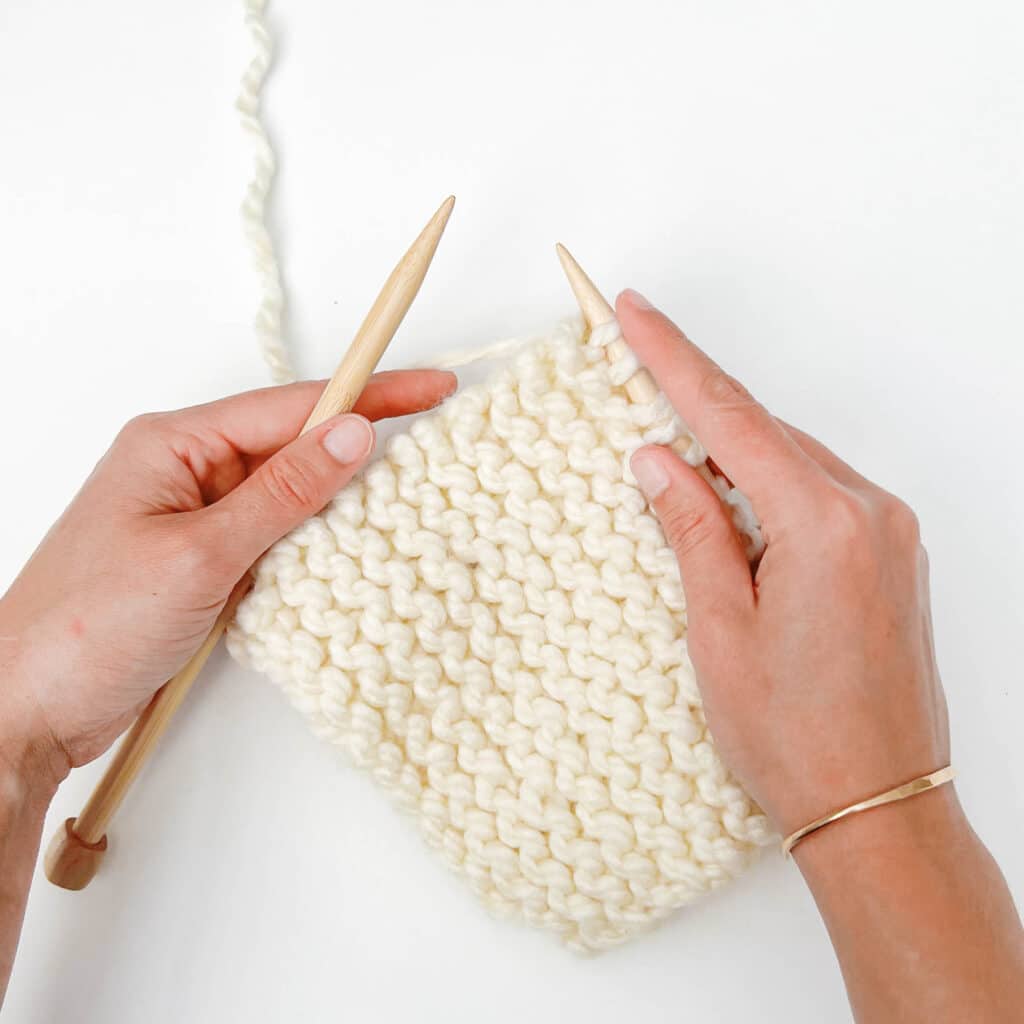
Brush up on the basics with our beginner knitting stitches series! Each tutorial features detailed step-by-step knitting instructions, videos, and photos for a stitch pattern. READ MORE…
